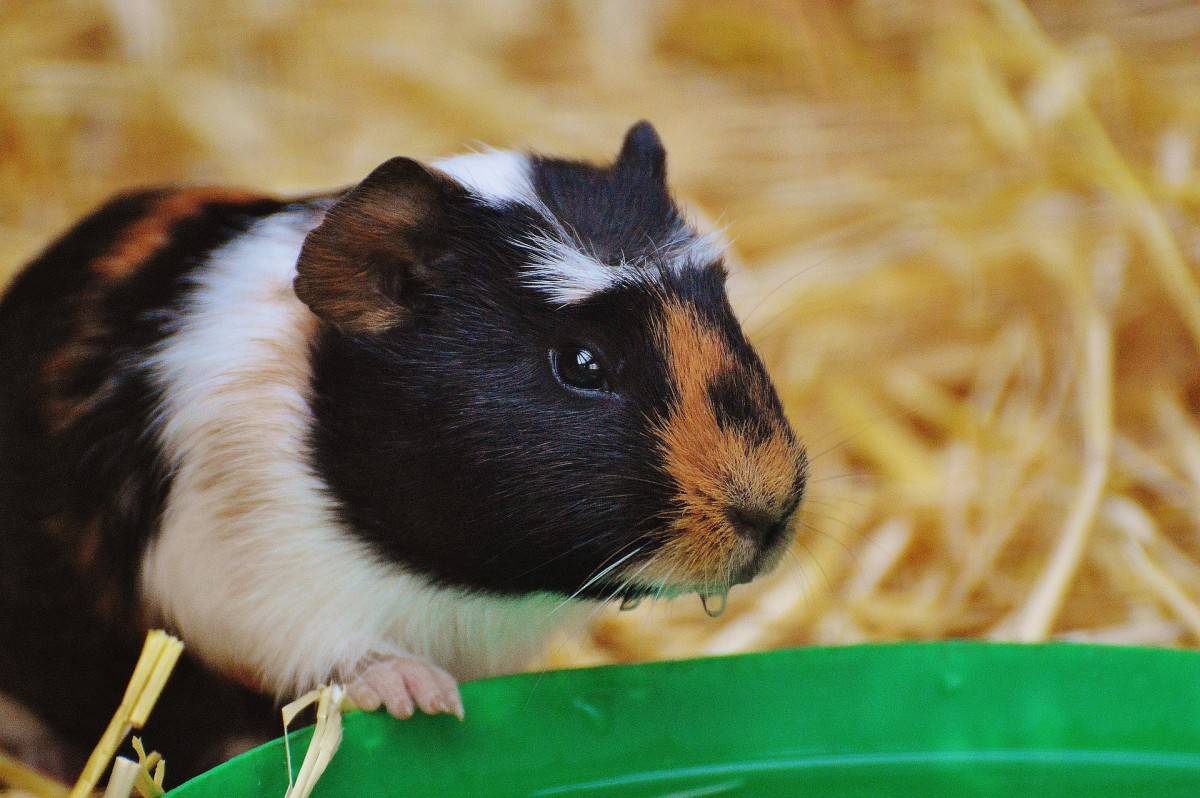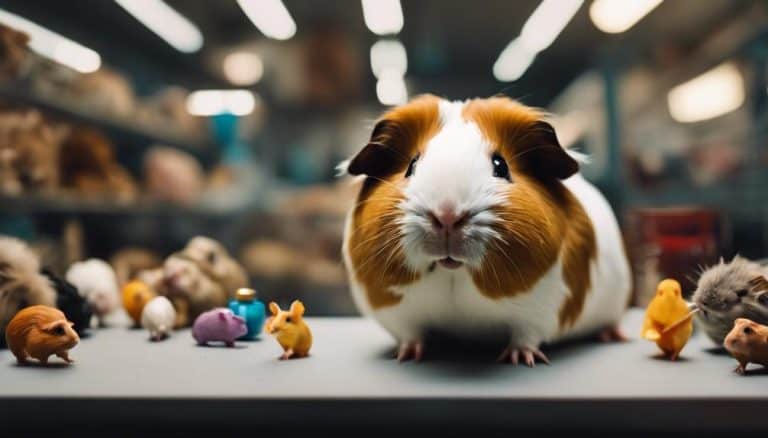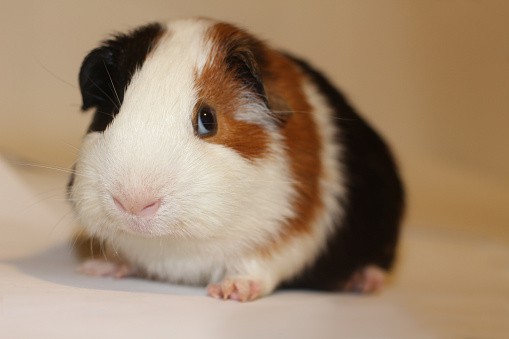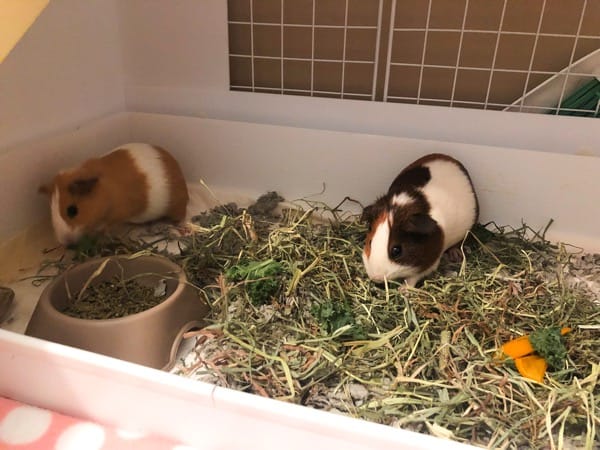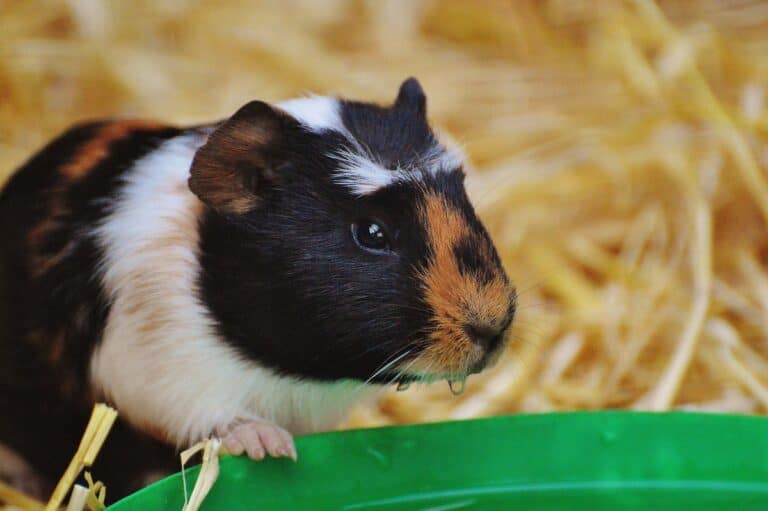Did i kill my guinea pig? Understanding common diseases and health issues in guinea pigs
Guinea pigs make wonderful pets, with their cute and cuddly appearance and their playful nature. However, as with all pets, there are some health issues that can arise that you should be aware of.
In this article, we will explore the most common diseases and health issues in guinea pigs, how to tell if your guinea pig is sick, how to prevent health issues and care myths to avoid.
What are common health issues in guinea pigs?
Respiratory issues
One of the most common health issues in guinea pigs is respiratory issues. This happens when their respiratory system becomes infected by bacteria or other foreign objects. This can lead to coughing, sneezing, lethargy, and loss of appetite. The best way to prevent these types of infections is to keep your guinea pig’s cage clean and well-ventilated.
Dental problems
Guinea pigs have constantly-growing teeth that require regular maintenance. If not properly maintained, dental problems can occur. These can include overgrown teeth or misaligned teeth that can lead to painful mouth ulcers and even abscesses. The best way to prevent dental problems is to provide your guinea pig with plenty of chew toys and a diet of hay and fresh vegetables.
Digestive disorders
Guinea pigs’ digestive systems are sensitive and can be easily disrupted by an improper diet or stress. Digestive disorders can cause symptoms such as diarrhea, constipation, and bloating. To prevent digestive disorders in your guinea pig, ensure they have access to fresh water and a balanced diet of hay, vegetables, and pellets.
How can you tell if your guinea pig is sick?
Changes in appetite or thirst
Loss of appetite or decreased thirst can indicate that your guinea pig is not feeling well. Monitor your guinea pig’s water bottle to ensure they are drinking regularly, and if they are not, it may be a sign that they need immediate veterinary attention.
Rapid breathing or wheezing
If your guinea pig is breathing rapidly or wheezing, it may be a sign of respiratory distress. Similar to humans, difficulty breathing can cause severe discomfort in guinea pigs and requires immediate medical attention.
Diarrhea or constipation
Any changes in bowel movements, such as constipation or diarrhea, can be an indication that your guinea pig is ill. If you notice any changes in your guinea pig’s bowels, seek veterinary treatment immediately.
What can you do to prevent health issues?
Maintain proper diet and nutrition
A healthy diet of hay, fresh vegetables, and pellets goes a long way in preventing many common health issues in guinea pigs. Make sure you are feeding your guinea pig a balanced and nutritious diet to keep them healthy and happy.
Keep their cage clean and comfortable
Keeping your guinea pig’s cage clean and comfortable is an essential part of maintaining their health. Guinea pigs are prone to respiratory issues, so ensure their cage is well-ventilated and bedding is changed regularly. Clean their food and water dishes daily to prevent any bacterial buildup.
Be diligent with regular check-ups
Regular check-ups with a veterinarian can help catch any health issues before they become severe. Just like humans, preventative care is crucial for guinea pigs. Schedule regular check-ups with your veterinarian to ensure your guinea pig remains healthy.
What are some guinea pig care myths to avoid?
Guinea pigs don’t need vitamin C supplements
Guinea pigs require vitamin C intake, and sometimes they cannot get enough from their diet alone. Offering a vitamin C supplement, whether in a chewable tablet or liquid form, can help ensure your guinea pig is receiving the proper amount.
They can survive on a diet of just pellets
Although pellets offer great nutritional benefits, they should not be the only source of food for your guinea pig. A balanced diet of hay and fresh vegetables are essential to maintain good health.
Guinea pigs are low-maintenance pets
Guinea pigs require regular handling, exercise, and a proper diet to ensure their well-being. They also require daily cage cleaning, attention to their bedding, and regular dental care. Adopting a guinea pig should not be taken lightly.
Where can you find reliable information and support?
Reddit communities dedicated to guinea pig care
Reddit has many online communities dedicated to guinea pig care, offering a wealth of information and support. You can join these communities to ask questions, share experiences and get advice from other guinea pig owners.
Local pet stores with knowledgeable staff
Many local pet stores have knowledgeable staff who can provide advice on guinea pig care and recommend guinea pig-friendly products.
Online resources from vet-approved websites
There are many online resources from vet-approved websites that provide information on guinea pig care. Examples of such websites are the American Society for the Prevention of Cruelty to Animals (ASPCA) and the Humane Society of the United States.
In conclusion, guinea pigs make great pets, but they do require proper care and maintenance. By maintaining their diet and nutrition, keeping their cage clean and comfortable, and seeking veterinary care, you can help prevent common health issues.
Remember, guinea pig care myths can be harmful, so it is essential to do your research and rely on reliable sources for information and support.
What Is The Most Common Cause of Guinea Pig Death?
Guinea pigs, also known as piggies, are beloved pets around the world due to their cute stature and friendly demeanor. Unfortunately, like any pet, they are prone to certain health issues that can lead to an early death.
The most common cause of guinea pig death is respiratory infections. These tiny creatures are very susceptible to upper respiratory infections, which can be caused by a damp or dirty cage, stress, or poor ventilation. When a guinea pig shows signs of respiratory distress, such as sneezing or coughing, it’s important to take them to a vet as soon as possible. It’s also important to make sure their cage is properly cleaned and ventilated to prevent these types of infections.
With proper care, however, guinea pigs can live long and happy lives as beloved pets. It’s essential to be vigilant and proactive in caring for them to avoid common health issues.
Can A Guinea Pig Go Into Shock?
Yes, a guinea pig can go into shock.
Shock in guinea pigs is often a result of extreme stress, pain, or trauma. It is characterized by symptoms such as low blood pressure, rapid breathing, and lethargy. If your piggy is exhibiting any of these symptoms, it is important to immediately assess the cause of their distress and seek veterinary care if necessary.
In some cases, simple measures like placing your pet in a quiet, warm, and comfortable environment may be enough to help them recover from shock. Additionally, make sure to provide your guinea pig with proper care and attention, including a spacious cage, fresh water, nutritious food, and adequate exercise.
By taking good care of your pet and being aware of their health needs, you can prevent conditions like shock and ensure that your piggie enjoys a healthy and happy life.
How Can My Guinea Pig Die From Shock?
Guinea pigs are delicate pets, and they can easily die from shock. One of the main reasons why guinea pigs can die from shock is due to sudden loud noises or unexpected events. For example, if a piggy is resting peacefully in its cage, sudden loud music or a nearby thunderstorm can scare it tremendously.
This can cause the piggy to go into shock and often lead to death. Guinea pigs can also become scared if they are suddenly introduced to new environments or unfamiliar people, particularly if they are not properly introduced. It is crucial to provide guinea pigs with a quiet and stable environment where they can feel secure and comfortable.
Additionally, it is important to handle guinea pigs with care, avoiding sudden movements that can scare them. With proper care and attention, guinea pigs can live long and healthy lives, but it is important to be aware of their delicate nature.
What To Do If My Guinea Pig Is In Shock?
If you notice that your guinea pig is in shock, it is important to act quickly and seek veterinary attention right away. Shock is a serious condition that can be caused by a variety of factors, such as injury, illness, or stress.
Signs of shock in a guinea pig may include a rapid or weak pulse, shallow breathing, cold extremities, and a lack of responsiveness. In order to help your piggy in this situation, you should ensure that they are in a warm and quiet environment and keep them as calm and still as possible.
If they are in a cage, be sure to do some adjustments to make them comfortable and increase the chances of relaxation. Your piggie may need additional medical care and treatment, such as fluid therapy or medication, which can be provided by a vet. Remember that getting prompt and appropriate medical attention can greatly improve your pet’s chances of survival and recovery.

